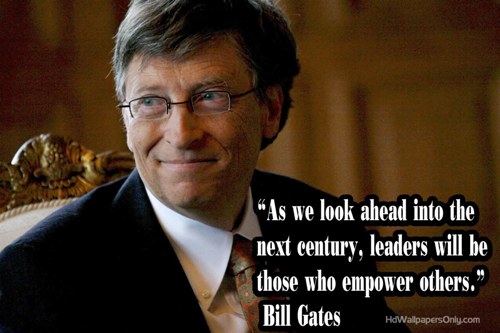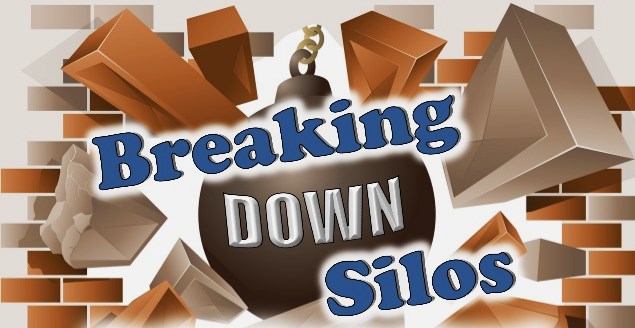 Photo Credit: Leo Reynolds, Flickr
Photo Credit: Leo Reynolds, Flickr
Today’s workplace bends with the culture. Historical and current contexts are present in our work culture, whether or not we acknowledge it. What if our culture has lost its interest in history…in experience… in the wisdom of the ages? What does that mean for those of us in the workplace, when cultural context isn’t seasoned by what we learn from the past? What does history teach us about leadership, about work, about each other?
When I think of audacious leaders, by definition, they can be two different sorts of folks:
- Courageous bold risk-takers, or
- Arrogant, impudent decision-makers
A negatively audacious leader demands followership. A positively audacious leader, in his own way, also demands followership. Still the most followable leader is the one who leads with both courage AND care.
Hopefully your experience of audacity in leadership is the most a positive one (as will be spelled out more below). Two things leaders always communicate, either positively or negatively, is that “work matters” and “people matter”. Context and history both matter, also, even though the trend in thinking is toward the ever-changing “latest and greatest”.
I am sounding really old here, but fortunately those who speak with much greater authority across the business world are starting to sound the same clarion call. Take Steve Farber and Paul Sohn.
What do they say about radical, audacious history-changing leadership?
In leadership coach Steve Farber‘s article What Is Extreme Leadership?, he talks about taking a “radical leap”. He asks the question: “What can I do, right now, regardless of what others around here are or are not doing, to change my piece of this world/company/organization for the better”?
The acronym is LEAP:
- L – Cultivate love.
- E – Generate energy.
- A – Inspire audacity.
- P – Provide proof.
 Photo Credit: Extreme Leadership, Steve Farber
Photo Credit: Extreme Leadership, Steve Farber
The Radical Leap – a Personal Lesson in Extreme Leadership – Steve Farber
I love Farber’s definition of extreme (audacious) leadership and I’ve had the great fortune of working with leaders like that.
Paul Sohn, also a leadership coach, write about a bold leadership model – one that incorporates the practices and wisdom of Jesus of Nazareth.
[Sidebar: It’s a shame that most think of Jesus as belonging to Christianity. I wonder, even, if only Christians read to this point of the piece. There is so much to learn and appreciate in the teachings of Jesus. Being put off by how we as clay-footed believers represent him at times is part of our dilemma today. Please don’t miss the wisdom and understanding his life offers to all of us.]
In Sohn’s article, 12 Leadership Lessons Every Leader Should Learn From Jesus, he lists out these lessons and gives context and commentary. Click on the link above to read more.
- To serve is to be great.
- There is a cure for worry.
- Love conquers all.
- Follow the Golden Rule.
- Ask for what you need.
- Judge not.
- Keep your word.
- Give in secret.
- Forgive others.
- Speak good words.
- Nothing is impossible if you have faith.
- Use it or lose it. – Paul Sohn from the teachings of Jesus
On Sohn’s bio page, he showcases this quote:
“If you want to build a ship, don’t drum up people to collect wood and don’t assign them tasks and work, but rather teach them to long for the endless immensity of the sea.”
“One will weave the canvas; another will fell a tree by the light of his ax. Yet another will forge nails, and there will be others who observe the stars to learn how to navigate. And yet all will be as one. Building a boat isn’t about weaving canvas, forging nails, or reading the sky. It’s about giving a shared taste for the sea, by the light of which you will see nothing contradictory but rather a community of love.” – Antoine de Saint-Exupery
This is such a beautiful picture of audacious leadership in the most positive sense. We who work together to develop a product or deliver a service can create something better together. Not only is the product or service better suited for the customer, but we are changed in the process. Photo Credit: George Couros, Flickr
Photo Credit: George Couros, Flickr
I do actually think it matters who the leader is, because our whole culture moves and shifts in response to who’s making decisions. However, we can determine (as leaders or as team players) to honor and elevate one another…as servant leader Jesus demonstrated in his life and teaching. We can build capacity, caring, and community, as Farber and Sohn prescribe, in how we lead and work.
We look back to what history has taught us; we consider the context of current culture; and we work forward to, hopefully, a better future. It’s only in giving up, that we fail. Be audacious in moving forward. It’s Monday…lots can happen.
The People Skills of Jesus – William Beausay II
The Management Methods of Jesus – Bob Briner
Lead Like Jesus Revisited – Ken Blanchard, Phil Hodges, Phyllis Hendry
Culture Eats Strategy for Breakfast – Paul Sohn
Wisdom for the Workplace – The Christian Working Woman – Mary Lowman
17 Powerful Workplace Scriptures – Work Matters – Whitney Gaines









